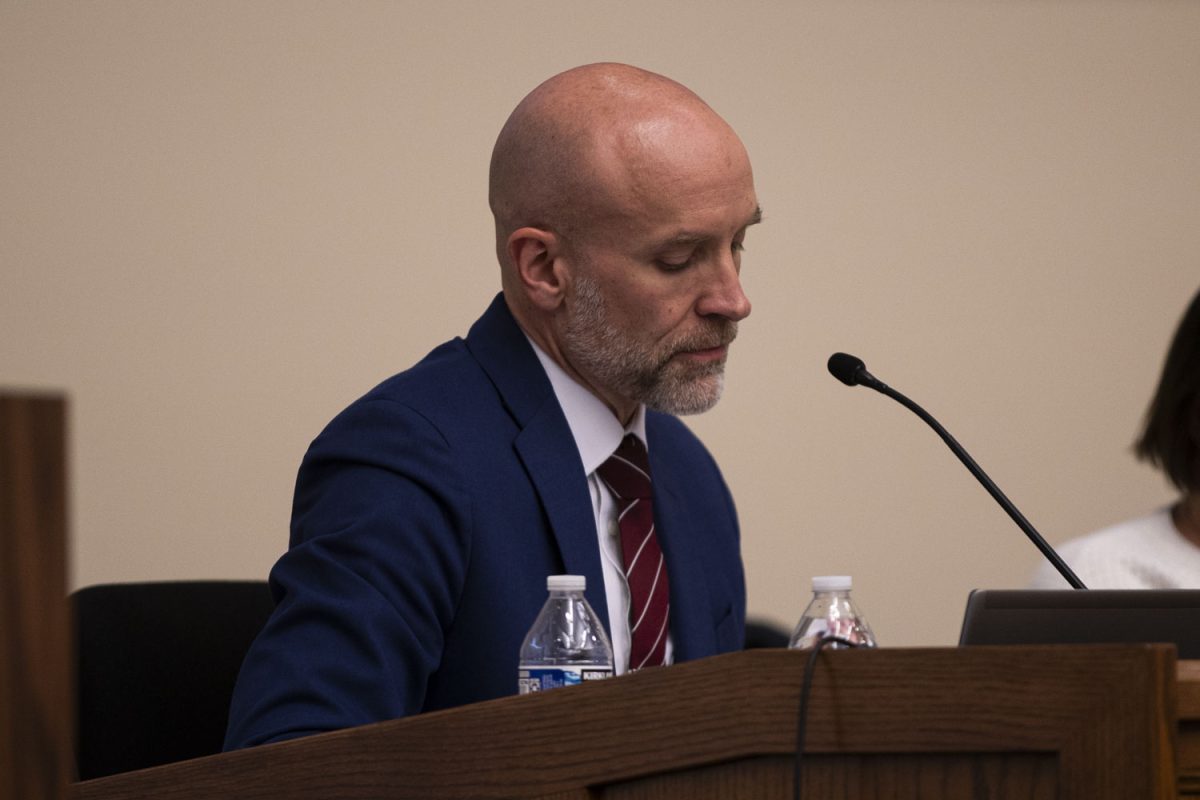The way students at the UI and across the country buy textbooks is undergoing a digital transition.
At Iowa Book, 8 S. Clinton St., e-textbook sales have doubled last year’s numbers. While the University Bookstore offers some digital options, officials said, e-textbook sales will likely become more prominent next semester.
Digital textbook companies’ sales have skyrocketed across the country — students are frequently renting or buying used books online, and some new companies are providing open-source textbooks. That means students potentially can access free text that they may customize.
New players seem to be cropping up every day, said Steven Bell, an associate university librarian for research and instructional services at Temple University Libraries who blogs about textbook prices.
The website Amazon, for example, recently unveiled the Kindle, a digital reading device.
“If it catches on, we’re doomed,” said Iowa Book manager Joe Ziegler. The Iowa City establishment would have to sell something other than textbooks, he said.
Ziegler thinks digital textbooks will take over soon.
All in all, the textbook industry is in a great state of turbulence, textbook sellers agree.
“It seems to be one of the hottest areas in higher education,” Bell said.
The primary reason for the changes: high prices for traditional texts.
While traditional sales still dominate the market, such companies as CourseSmart, which sells eTextbooks, are seeing rapid growth. Between 2008 and 2009, sales increased 600 percent, said Frank Lyman, the executive vice president of CourseSmart.
Students can either download an e-textbook or access it online, saving an average of around 50 percent — typically around $50 to $60 per book, he said.
While numerous UI students had heard of e-textbooks, only a small number bought the digital versions.
UI sophomore Jules Pratt said her human biology book is the first time she’s had the opportunity to go digital. The roughly $50 price-tag enticed her, she said, and she grabbed one of the last ones from the University Bookstore’s stack. But she said she only went digital because it’s a class for non-majors.
“It’s something I know I wouldn’t have to rely on,” she said.
Approximately 28 students in this semester’s human biology class went digital, while around 131 got a hard copy, which was sold in a three-ring binder for about $80, said Richard Shannon, general manager of the University Bookstore.
Junior Jamie Grant said he preferred a hard copy and didn’t want to lug around his laptop everywhere.
But one of the perks of e-textbooks, Lyman said, is that students can do everything they could with a regular book yet also electronically search the document and copy and paste large swaths of text directly into their notes.
Students could theoretically copy the whole book into a new document and share it, but much of the formatting would be lost, Lyman said.
UI graduate student Steve Courtright used another option called Flat World Knowledge, an open-access textbook provider, for a previous Introduction to Management class.
Only three of his students chose to use the free textbook, while the vast majority opted to get the textbook in either black and white or color at a cheaper price.
Although he didn’t particularly like the text, he was able to eliminate chapters and sections that weren’t relevant. His students also had the option of purchasing a PDF or audio version of the book.
“I think that the students liked the variety and choices enough that I would probably go for it again,” he said.
Eric Frank, the founder and chief marketing officer of Flat World Knowledge, said e-textbooks are just “the first act.”
“It’s an attempt to take the same product, put it online and add a little bit more functionality,” he said, noting that even though e-textbooks were cheaper, he still didn’t think they were reasonably priced.
Flat World Knowledge has published textbooks being used in 400 college classrooms.
Approximately 65 percent of students end up placing an order for some form of the textbook, he said.
“Even if you offer a free textbook online … given a reasonably priced alternative, a significantly large number of students will buy those other versions,” he said.






